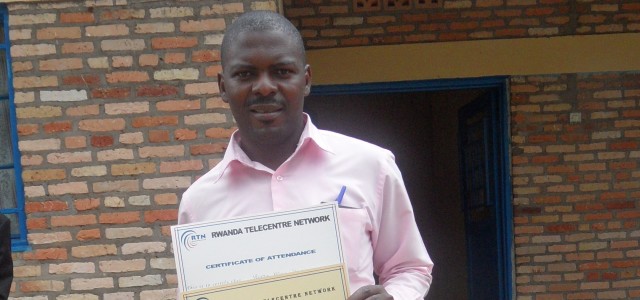Jean de Dieu Niyibizi, president of the Twihangire Imirimo Cooperative, unfurls a 3-metre long roll of laminated paper, revealing three stylized sketches depicting the dramatic changes that have taken place in the surrounding villages and farmland since 2006. “in 2006, we were getting just 600 kg of maize per hectare,” says Jean. “By 2011 we were getting 4 T, and we’re hoping to get 5 T by next year.”
The picture of progress depicts numerous other changes, mostly for the better. The leaking thatch on their homes has been replaced by tin roofs. dirt roads have been improved and in some places paved. The village now has drying sheds for maize and many farmers get around by motorbike, rather than on foot or by cart.
According to cooperative members, the training they have received from RTN and other agencies at the Gakenke Business development Centre has played a major role in raising living standards.
“we have discovered new markets, developed new crops and improved our incomes,” says Jean”. And because we’ve been able to develop business plans, the banks are more willing to provide us with credit.”
Paul Barera is particularly encouraged by the way the cooperative uses the internet. “They’re doing their own research and development and using
ICTs in a very entrepreneurial way,” he says.
Not long ago, the main crops were maize and beans. Now, making use of information on the web, they are growing tomatoes and developing a small-scale pig industry. They have also learned about new techniques in storage and disease and pest control.

